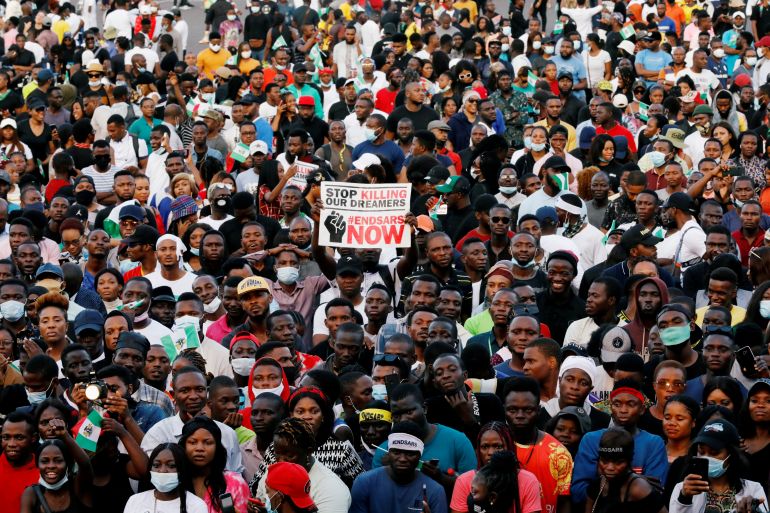Peaceful protest is an encouraged avenue for Nigerian youth to call attention to urgent issues and demand necessary reforms from government officials. By organizing peaceful demonstrations, youth can amplify their voices and bring public scrutiny to issues that require immediate attention. Such protests serve as powerful tools for civic engagement, emphasizing the importance of transparency and accountability in governance.
By Lukman Aliagan
In Nigeria, the clamor for change resonates deeply among the nation’s youth, whose aspirations for accountability and transparency transcend mere presidential governance. Often fixated on the head of state, the youth’s focus should expand to encompass all levels of government, notably state governors, local government chairmen, and parliamentary bodies. This redirection of scrutiny is pivotal in fostering a more robust democratic landscape.
The Nigerian youth, historically vocal in their dissatisfaction with federal leadership, must pivot towards local governance for holistic accountability. State governors and local government chairmen wield significant power in shaping communities, yet scrutiny of their actions remains muted. It is imperative for the youth to question these officials about their policies, expenditures, and developmental agendas. By doing so, they can ensure that promises made during electoral campaigns translate into tangible improvements in their communities.
Furthermore, the upper and lower chambers of Nigeria’s National Assembly, along with electoral officers, are pivotal in shaping the legislative and electoral processes. The youth’s role in demanding transparency from these institutions cannot be overstated. Legislative bodies hold sway over crucial decisions impacting education, healthcare, and infrastructure development, making it essential for young Nigerians to hold their representatives accountable for legislative actions and budgetary allocations.
Electoral officers, entrusted with safeguarding the integrity of Nigeria’s democratic process, are another cornerstone of accountability. Ensuring free, fair, and transparent elections falls squarely on their shoulders. The youth’s vigilance in scrutinizing electoral processes ensures that their voices are accurately represented and that electoral malpractices are swiftly addressed.
Peaceful protest is an encouraged avenue for Nigerian youth to call attention to urgent issues and demand necessary reforms from government officials. By organizing peaceful demonstrations, youth can amplify their voices and bring public scrutiny to issues that require immediate attention. Such protests serve as powerful tools for civic engagement, emphasizing the importance of transparency and accountability in governance.
By broadening their focus beyond the presidency, Nigerian youth can catalyze meaningful change across all tiers of government. This proactive stance not only enhances democratic participation but also cultivates a culture of accountability among public officials. Through petitions, public forums, advocacy campaigns, and peaceful protests, young Nigerians can wield their collective influence to demand transparency, ethical governance, and sustainable development.
In conclusion, while the presidency commands national attention, Nigeria’s youth must redirect their scrutiny towards state governors, local government chairmen, parliamentary bodies, and electoral officers. By holding these officials accountable and engaging in peaceful protest when necessary, the youth can catalyze transformative change at the grassroots level and foster a more responsive and accountable government for all Nigerians.
Lukman Aliagan, a Realtor and social analyst writes from Abuja.

